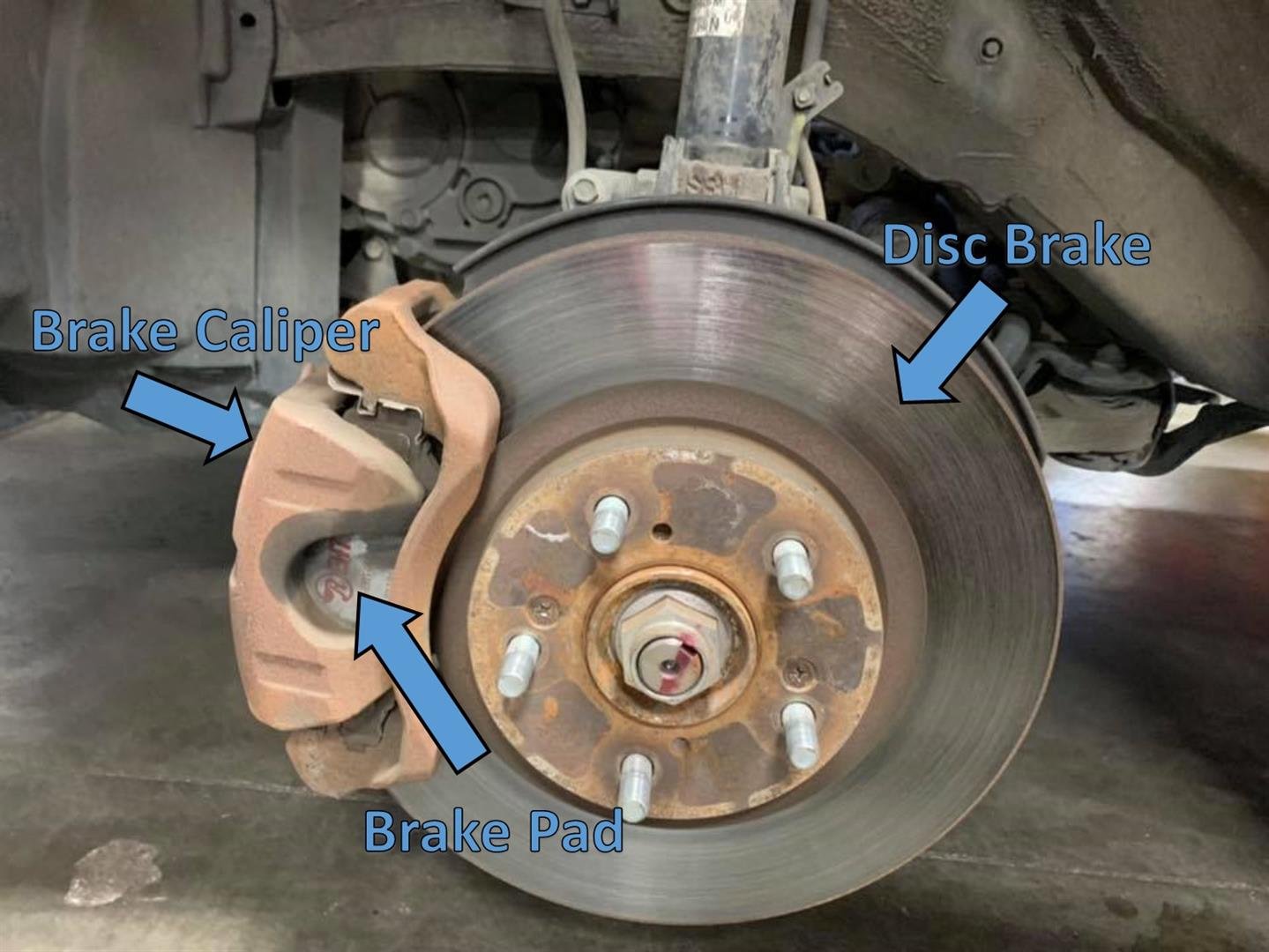When to Replace Brake Pads and Rotors
When to replace brake pads and rotors - knowledge from expert brake mechanics at Action Jackson Auto.
When should you replace and repair your brake pads and rotors? This article gives you insight into the best recommendations when you should replace your brake pads and rotors to keep your car safer on the road.
Your car's brake system is one of the most important safety features of your vehicle. As such, it is critical to keep your brakes in good working condition to ensure that you and your passengers remain safe while driving. The brake pads and rotors are two essential components of your car's braking system that require regular maintenance and replacement. In this article, we will explore when you should change your car brake pads and rotors, as well as the signs that indicate they need to be replaced.
When to Change Your Brake Pads
Brake pads are the component of your braking system that make contact with the rotor to slow down or stop your vehicle. Over time, brake pads wear down due to the friction and heat generated by braking. When brake pads become too worn, they can no longer effectively slow down or stop your vehicle, which can lead to a dangerous situation. To prevent this, it is important to regularly inspect your brake pads and replace them when necessary.
The Lifespan of Brake Pads - How Long Do Brake Pads Last?
The lifespan of your brake pads depends on various factors, such as your driving style, the weight of your vehicle, and the type of brake pads you use. As a general rule, brake pads should be replaced every 25,000 to 50,000 miles. However, you may need to replace them more frequently if you frequently drive in stop-and-go traffic or carry heavy loads.
To determine if your brake pads need to be replaced, you can visually inspect them by looking through the spokes of your wheels. You should be able to see the brake pads through the openings in the wheel. If the brake pads appear to be less than a quarter-inch thick, it is time to replace them. Additionally, most brake pads come with a wear indicator that emits a high-pitched squeal when the brake pads are worn down to their limit. If you hear a squealing sound when you apply the brakes, it is a sign that your brake pads need to be replaced.
Other Important Signs When You Need to Replace Brake Pads
Other signs that your brake pads may need to be replaced include a soft or spongy brake pedal, a grinding noise when you apply the brakes, or a vibration in the brake pedal or steering wheel when you brake. If you notice any of these signs, you should have your brakes inspected by a mechanic as soon as possible.
When to Change Your Brake Rotors
Brake rotors are the round discs that the brake pads clamp onto to stop your vehicle. Like brake pads, brake rotors can also wear down over time due to the friction and heat generated by braking. If your brake rotors become too thin or develop deep grooves or cracks, they can no longer effectively slow down or stop your vehicle, which can lead to a dangerous situation. To prevent this, it is important to regularly inspect your brake rotors and replace them when necessary.
The Lifespan of Brake Rotors - How long Do Brake Rotors Last?
As with brake pads, the lifespan of your brake rotors depends on various factors, such as your driving style and the weight of your vehicle. In general, brake rotors should be replaced every 50,000 to 70,000 miles. However, you may need to replace them more frequently if you frequently drive in stop-and-go traffic or carry heavy loads.
To determine if your brake rotors need to be replaced, you can visually inspect them by looking through the spokes of your wheels. You should be able to see the brake rotors through the openings in the wheel. If the brake rotors appear to be scored or have deep grooves, it is time to replace them. Additionally, if you feel a pulsation or vibration in the brake pedal or steering wheel when you apply the brakes, it may be a sign that your brake rotors are warped and need to be replaced.
Are Your Brake Rotors Grinding and Vibrating?
Other signs that your brake rotors may need to be replaced include a scraping or grinding noise when you apply the brakes, or if the brake pedal feels soft or spongy when you apply pressure. A brake pedal that feels mushy or goes all the way to the floor could also indicate a problem with the brake rotors. If you notice any of these signs, you should have your brakes inspected by a mechanic as soon as possible.
When to replace car brake pads and rotors? This article will help you better understand brakes on cars and trucks - by the auto brake experts at Action Jackson Auto.
In addition to regular inspections, it is important to take good care of your brakes to extend their lifespan. For example, try to avoid sudden stops and starts and use your brakes gently to reduce wear and tear. You should also have your brakes serviced by a qualified mechanic at least once a year, or more often if you notice any of the signs we've discussed.
When replacing brake pads and rotors, it is important to use high-quality brake parts that are designed for your specific vehicle. Choosing the right parts can help ensure that your brakes work properly and last as long as possible. You should also have your brake system checked and possibly flushed at the same time as your brake pad and rotor replacement to keep it in top condition.
In summary, keeping your brakes in good working condition is essential for your safety on the road. Regular inspections of your brake pads and rotors can help you identify problems before they become serious. If you notice any of the signs we've discussed, you should have your brakes inspected by a qualified mechanic as soon as possible. By taking good care of your brakes and using high-quality parts, you can help ensure that your vehicle stops reliably and safely for many years to come.
If you need help installing new brake pads or rotors, contact our expert brake mechanics


